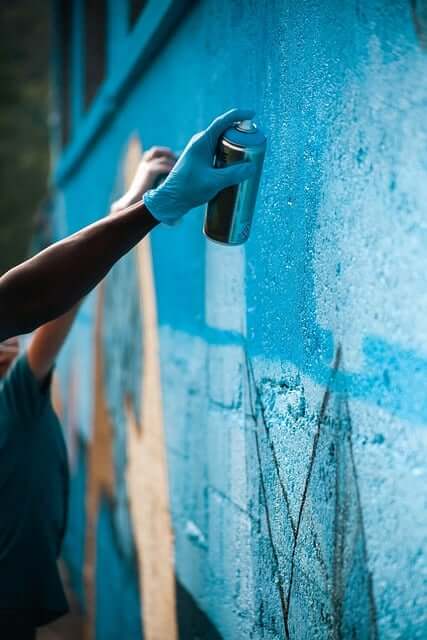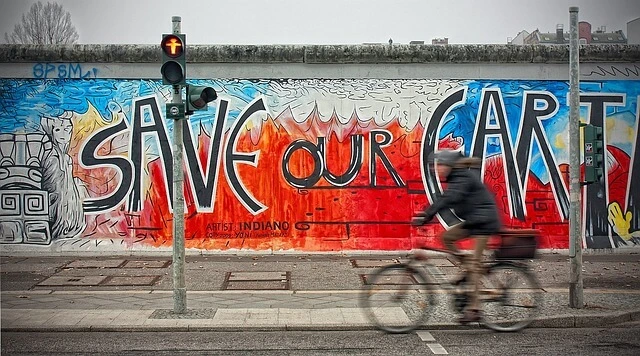Graffiti, a form of street art that has been around for decades, has always been a topic of controversy. While some view it as a vibrant and creative form of expression, others consider it vandalism and a public nuisance. This raises the question: is graffiti illegal? In this article, we’ll explore the laws surrounding graffiti and help you understand the legal implications of creating street art.
Table of Contents
The Legality of Graffiti

In most countries, including the United States, graffiti is considered illegal when it is created on public or private property without the owner’s permission. This means that if you create graffiti on a building, fence, or any other surface without the property owner’s consent, you could face legal consequences.
The specific laws and penalties for graffiti vary by jurisdiction. In some cases, graffiti may be classified as a misdemeanor, while in others, it may be considered a felony. Factors such as the extent of the damage, the cost of removal, and the artist’s prior offenses can influence the severity of the charges.
Consequences of Illegal Graffiti
If caught creating illegal graffiti, artists may face a range of penalties, including:
- Fines: Graffiti artists may be required to pay substantial fines, which can vary depending on the jurisdiction and the extent of the damage caused.
- Community service: Some courts may sentence graffiti artists to perform community service, such as cleaning up graffiti or participating in anti-graffiti education programs.
- Jail time: In severe cases, particularly those involving repeat offenders or significant property damage, graffiti artists may face jail time.
- Criminal record: A conviction for graffiti can result in a criminal record, which may have long-term consequences, such as difficulty finding employment or housing.
Legal Alternatives to Illegal Graffiti
While creating graffiti without permission is illegal, there are legal alternatives for artists who wish to express themselves through street art:
- Commissioned murals: Property owners may commission artists to create murals on their buildings or walls. This allows artists to showcase their skills while working within the confines of the law.
- Designated graffiti areas: Some cities have designated areas where graffiti is allowed, such as legal graffiti walls or parks. These spaces provide artists with a legitimate outlet for their creativity.
- Permitted street art events: Many communities host street art festivals or events where artists can create work on approved surfaces with the necessary permits.
- Private property: If you own a property or have permission from the owner, you can create graffiti on your own walls or surfaces without breaking the law.

A legally commissioned mural on a Berlin building wall
The Debate Surrounding Graffiti
The legality of graffiti is just one aspect of the ongoing debate surrounding this art form. Supporters argue that graffiti is a valuable form of expression that adds character and vibrancy to urban environments. They point to the role of graffiti in social and political commentary, as well as its influence on contemporary art and popular culture.
On the other hand, opponents view graffiti as a form of vandalism that contributes to urban decay and can be costly to remove. They argue that unauthorized graffiti can lower property values, attract criminal activity, and create a sense of disorder in communities.
Navigating this debate requires a nuanced understanding of the complex social, cultural, and legal issues surrounding graffiti. While it is essential to respect private property rights and maintain public spaces, it is also important to recognize the value of artistic expression and the potential for graffiti to enrich our urban landscapes when created in a responsible and legal manner.
To learn more about the debate surrounding graffiti, check out these resources:
Is Graffiti Illegal? The Bottom Line
So, is graffiti illegal? In most cases, yes. Creating graffiti on public or private property without permission is considered vandalism and can result in legal consequences. However, there are legal alternatives for artists who want to express themselves through street art, such as commissioned murals, designated graffiti areas, permitted street art events, and creating on private property with the owner’s consent.
Understanding the laws surrounding graffiti is crucial for both artists and property owners. By engaging in open dialogue, supporting legal outlets for artistic expression, and finding ways to collaborate, we can work towards a future where the creative energy of graffiti can be harnessed in a positive and lawful way.
